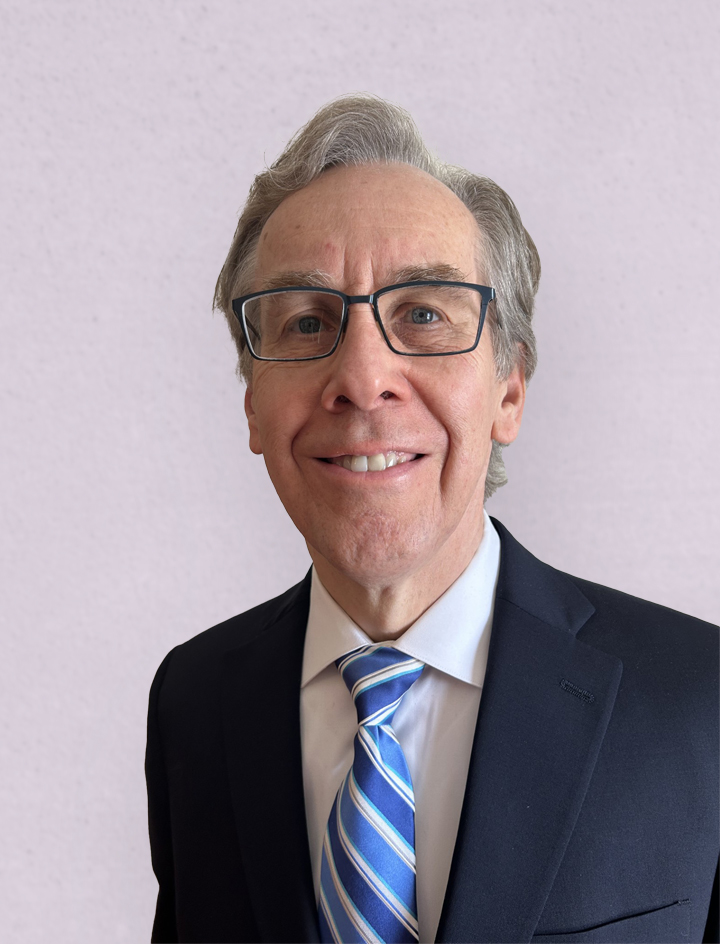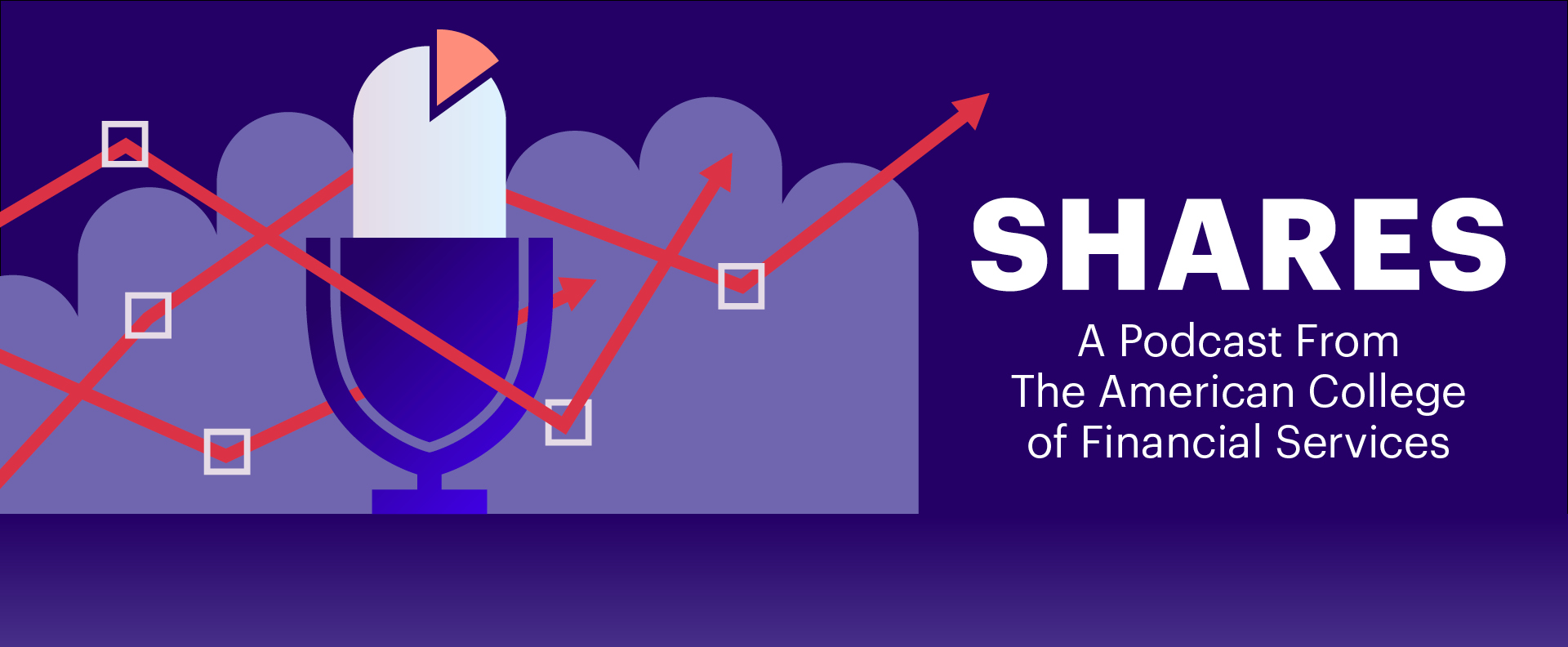Author
Subscribe to Newsletter
Related Posts
Financial Services Firms of the Future
View DetailsMolding the Next Generation of Financial Services
View DetailsPractice Management Insights
How Clients Benefit From Designations

The value professional designations offer to financial professionals is critically important. After all, statistics like a 13% higher growth in earnings among College designees over the last three years compared to those with no designations1 are likely encouraging for anyone considering the pursuit of a designation from The College.
However, after a financial professional has earned their designation, it is equally important that they be able to speak to the benefits a designation offers to their clients. Fortunately, the 2024 Designation Outcomes Study, conducted in partnership with FUSE Research Network, provides some insight and direction on how to demonstrate your increased value.
How Designations Benefit Clients
According to the data gathered in the 2024 Designation Outcomes Study, business practices and relationships between financial professionals and their clients improved significantly1:
- 74% of College designees reported improved client conversations
- 70% of College designees reported an improved ability to assist their clients in meeting goals
- 65% of College designees reported higher client satisfaction
Financial professionals with designations from The College not only demonstrate increased knowledge to assist clients, but also better skills to foster strong relationships with their clients. These improved relationships may originate, in part, from a financial professional’s ability to speak to a specialized field in which a client requires assistance.
This claim is supported by data found in a Cerulli study. The study posits that enhanced engagement with clients’ financial situations, such as offering specialized services, leads to stronger client relationships, improved client retention, and generally correlates to an increase in a practice’s assets under management and average client size.2
Designations Helping Clients Plan for Retirement
Being able to speak knowledgeably about important topics such as retirement while helping clients achieve improved outcomes in a planning area that can be challenging, even for skilled financial planners. For this reason, many clients find better results when working with a specialist, such as a Retirement Income Certified Professional® (RICP®). A RICP® possesses expert-level retirement knowledge that can help clients achieve improved retirement outcomes. This knowledge likely contributes to RICP® holders outpacing their peers when it comes to improved client relations1:
- 83% reported improved client conversations
- 81% reported an improved ability to assist their clients in meeting goals
- 69% reported higher client satisfaction
These numbers suggest a very strong correlation between the RICP® designation and improved client relationships.
Designations Leveraged to Plan for Underserved Communities
One other such specialization, special needs planning, requires financial professionals to have a strong understanding of their clients’ individual situations. Offering services to this traditionally underserved community results in a strong bond between financial professionals and their clients. As such, the Chartered Special Needs Consultant® (ChSNC®) also boasts impressive numbers relating to client relations1:
- 75% reported improved client conversations
- 72% reported an improved ability to assist their clients in meeting goals
- 63% reported higher client satisfaction
Similarly to the RICP®, the ChSNC® designation serves as an indicator of expert-level knowledge to clients looking for financial planning relations to their specialized field.
Designations Allow Clients to Build a Lasting Impact
Another designation we see this trend with is the Chartered Advisor in Philanthropy® (CAP®). Holders of the CAP® designation offer extensive knowledge of philanthropic planning and are qualified to help clients with goals they may be especially passionate about such as charitable giving, legacy planning, and nonprofit planning. As such, numbers indicate that the work of CAP® designees is greatly appreciated by clients1:
- 81% reported improved client conversations
- 76% reported an improved ability to assist their clients in meeting goals
- 68% reported higher client satisfaction
Like other designations, earning the CAP® correlates with significant improvements in a financial professional’s relationships with their client, as the financial professional works with their clients to help them realize their legacy.
How Designations Power Success
All these statistics point to a major trend among all College designations that grows more pronounced among more specialized designations. Improved conversations, higher client satisfaction, and more suggest that clients appreciate the care they receive when working with designation holders and act accordingly, offering their financial professionals greater trust and staying with them longer — benefitting both their wellbeing and your bottom line.
Learn more about the benefits financial professionals and their clients can receive in our 2024 Designation Outcomes Study results.
More From The College

FSA, CLU®, MS
Author
Eric LudwigSubscribe to Newsletter
Related Posts
Financial Services Firms of the Future
View DetailsMolding the Next Generation of Financial Services
View DetailsWealth Management Retirement Planning Insights
Research Based Tips for Advisors in Volatile Times

In early 2025, we find ourselves in a familiar place. Several major indices have recently entered correction or bear market territory, and investor anxiety is once again on the rise. For financial advisors working with retirees, these moments bring a familiar tension: How do you keep clients from abandoning their long-term investment plans in the face of short-term fear?
That question drove my research into investor behavior during market volatility. I analyzed a nationally representative sample of older investors using Health and Retirement Study data collected during the COVID-driven bear market in 2020. What I found confirms what many advisors have seen firsthand—and it also points to a practical solution.
The Hidden Risk: Sequence of Returns
One of the greatest threats to retirement success is not a market crash. It’s what a retiree does in response.
When investors reduce equity exposure during a downturn, they may feel like they’ve made a smart move. In the short term, that might even be true. They avoid further losses and experience a sense of control.
But being "short-term right" can lead to being "long-term broke." This behavior compounds the problem of sequence of return risk. For retirees who are withdrawing from their portfolios, early losses combined with reduced equity exposure mean they are less likely to recover when the market bounces back. They lock in losses, miss the recovery, and lose the potential for growth. The math of retirement doesn’t forgive that easily.
The Real Predictor: Market Outlook
Much of our industry focuses on risk tolerance and time horizon. Those are important, but they don’t tell the whole story. In this study, the strongest predictor of whether an older investor reduced stock exposure during the COVID market crash wasn’t their personality, education, or even prior asset allocation. It was how they felt about the market’s direction over the next 12 months.
Put simply, when people believed the market would go up, they stayed the course. When they believed it would go down, they bailed.
This insight matters because market outlook is not a fixed trait. It can be shaped by advisors. This gives us a lever to protect clients from their own worst instincts.
What Financial Advisors Can Do
Here are several practical ways financial advisors can use these insights in real-world practice:
1. Ask about long-term market expectations.
When the market drops, don’t just ask if clients are okay. Ask them what they think the market will be like 12 months from now. Their answer can serve as an early warning sign. A pessimistic outlook signals a higher likelihood of behavior change. It also steers the conversation to longer-term expectations instead of near-term volatility.
2. Frame volatility as normal and expected.
Remind clients that volatility is part of the plan, not a sign the plan is broken. Use historical examples to show how markets have recovered and why staying invested matters.
3. Address the illusion of control.
Moving to cash may feel safer, but it’s often just swapping one kind of risk for another. Clients need to understand that avoiding short-term losses often means losing long-term returns. This can be illustrated with financial planning software solutions.
4. Be strategic with reassurance.
Not all clients need the same level of communication. The data shows that personality plays a role: clients who are more anxious or pessimistic need more regular, personalized touchpoints during volatility. Chances are, you know who those clients are.
5. Normalize market dips as rebalancing opportunities.
Clients who follow the market more closely are less likely to reduce risk. That suggests that education and familiarity can help. Position downturns as temporary and potentially beneficial for long-term investors.
Final Thought
You can’t change someone's personality, but you can influence how they feel about the future. That’s the real takeaway for advisors.
Especially during volatility periods like we’re seeing in 2025, a client’s market outlook becomes a leading indicator of future behavior. By identifying and addressing that outlook, advisors can reduce the odds of panic-driven portfolio changes, protect long-term outcomes, and provide more than just financial value—they offer emotional stability and decision-making support when it matters most.
In the end, good advisors manage portfolios. Great advisors manage behavior.
More From The College
Author
Subscribe to Newsletter
Related Posts
Financial Services Firms of the Future
View DetailsMolding the Next Generation of Financial Services
View DetailsRetirement Planning Special Needs Planning Insights
Long Term Care Strategies in Retirement Planning

In a workshop session at our Horizons 2025 conference, Director of College Research Kaylee Ranck, PhD, and Managing Director of the American College Center for Special Needs Joellen Meckley, JD, MHS, ChSNC®, discussed the topic of long-term care (LTC) and its impacts on retirement planning.
ThinkAdvisor’s John Manganaro moderated the session, designed to inform financial professionals of the potential threat that LTC costs can have on retirement plans, as well as offer tools for retirement advisors to protect against potentially excessive costs of care.
Why is Long-Term Care Important?
While many professionals may know anecdotally that LTC costs can be prohibitive, the latest research reinforces that reality. In their discussion, Meckley and Ranck presented some sobering statistics, including the annual median cost of a private nursing home room ($104,000 per year) and that 70% of people age 65 or older will at some point require long-term care — one-fifth of whom will need it for at least five years.1
The burdens of LTC costs hit women especially hard as they are commonly caregivers, with women caregivers losing over $300,000 in lifetime earnings on average to deal with healthcare costs in retirement. Additionally, 60% of women caregivers experience disruptions to their work lives stemming from the long-term care needs of others.2 Our 2023 Retirement Income Literacy Study results reinforce this point for women and caregivers across the board and drive home the importance of considering healthcare costs in retirement: nearly 80% of respondents said they currently had no plan in place to fund potential LTC needs.
“Women are often the safety net, providing care, absorbing the cost, and sometimes sacrificing career opportunities,” Ranck said. “Planning for long-term care helps redistribute that burden.”
LTC Strategies and Solutions
Ranck and Meckley added, however, that many options for retirement income planning can help mitigate long-term care costs. Insurance is one such option through either traditional LTC insurance policies, hybrid policies, or life insurance with LTC riders. Health Savings Accounts (HSAs) can also provide a pre-tax source of healthcare-specific savings for retirees to draw on later in life. However, HSAs must be funded before signing up for Medicare and are only available to individuals enrolled in high-deductible health plans, making early planning essential.
Additionally, the duo also highlighted that incentives for more in-depth LTC planning exist for retirement advisors at the federal and state level. Under the SECURE 2.0 Act, individuals may use qualified account distributions to pay LTC premiums without an early withdrawal penalty. While state benefit options may vary across the country, a dozen states are currently considering further LTC tax legislation, and other options like the LTCi Partnership Program exist to protect assets from Medicaid estate recovery programs should the burdens of LTC costs become too high.
In the end, Meckley and Ranck emphasize there are two options for dealing with long-term care costs: to accept the risk through income-based or asset-based funding options like Social Security, pensions, and other savings vehicles; or to transfer the risk with an LTC insurance option. In either case, potential clients need a retirement advisor knowledgeable enough to provide these options — and a financial planning certification like the Retirement Income Certified Professional® (RICP®) designation can help you provide that specialized planning service.
"When clients wait until a crisis hits, the options narrow, and the emotional toll spikes,” Ranck said. “Planning proactively means preserving choices and a sense of control."
More From The College
Author
Eric LudwigSubscribe to Newsletter
Related Posts
Financial Services Firms of the Future
View DetailsMolding the Next Generation of Financial Services
View DetailsRetirement Planning Podcasts
Retirement Planning in Volatile Markets

In this episode of the Shares podcast, Retirement Income Certified Professional® (RICP®) Program Director Eric Ludwig, PhD, CFP® welcomes Steve Parrish, JD, RICP®, CLU®, ChFC®, AEP®, a fellow professor at The College and retirement planning expert, to discuss recent shockwaves across financial markets and how financial professionals can best respond — especially when talking with their clients nearing or in retirement. They explore strategies to ensure clients’ assets are secure, put them at ease with historical context, and more.
Steve Parrish, JD, RICP®, CLU®, ChFC®, AEP® is a professor of practice at The American College of Financial Services and a scholar in residence at the American College Cary M. Maguire Center for Ethics in Financial Services. He joined The College in 2015, previously serving on the faculty of Drake University Law School, where he was an adjunct professor of estate planning and interim director of the Compliance and Risk Management Department.
Drawing on more than 45 years’ experience with companies such as The Principal Financial Group, Amerus Life Insurance Company, and his own advisory firm, Parrish is a recognized industry authority, spokesperson, and author. He continues to serve as an ongoing contributor for both Forbes.com and Kiplinger.com and is a contributing author to the 2023 e-textbook Retirement Plans and Retirement Planning. He received his BA, cum laude, from Saint Olaf College and his Juris Doctor (JD) degree from the William Mitchell College of Law.
Any views or opinions expressed in this podcast are the hosts’ and guests' own and do not necessarily represent those of The American College of Financial Services.
More From The College
- Secure specialized expertise in retirement income planning with the Retirement Income Certified Professional® (RICP®) Program.
- Help your clients become better partners in planning with The Retirement Course™.
Author
Subscribe to Newsletter
Related Posts
Financial Services Firms of the Future
View DetailsMolding the Next Generation of Financial Services
View DetailsAbout The College Press
The College Partners With Comercio TV

King of Prussia, PA — April 15, 2025 — In a significant step toward advancing financial literacy for Spanish-speaking communities, The American College of Financial Services is making its widely recognized program, Know Yourself, Grow Your Wealth®, accessible in Spanish, equipping professionals and families with essential financial knowledge. Director of Program Development and co-lead for The College's representation strategy Valencia Gabay, PhD, CFEI®, led the effort to translate course content.
As part of this initiative, Comercio TV has translated the video lessons in Know Yourself, Grow Your Wealth® into Spanish, ensuring that Spanish-speaking individuals have access to critical financial education. The course will be available for free with this link: https://qr.codes/fb2klx
“This partnership reflects our shared dedication to empowering individuals with financial knowledge,” said The College’s Assistant Vice President of Financial Education and Wellness Timi Jorgensen, PhD. “Bringing Know Yourself, Grow Your Wealth® to Spanish-speaking communities is a vital step in closing the financial literacy gap and providing educational tools that can create real, lasting financial empowerment.”
“This initiative is a significant step in making financial education more accessible to the Spanish-speaking community,” added Comercio TV’s Director of Content Strategy Freddy Arias Jr. “We are excited to collaborate with The American College of Financial Services to ensure that these valuable financial resources reach as many individuals as possible through multiple media channels.”
ABOUT COMERCIO TV
Comercio TV is a leading Spanish-language financial news network committed to delivering timely, relevant financial content to the Hispanic community. Comercio TV connects Spanish-speaking professionals, investors, and families with essential financial news and educational resources available via cable, satellite, and digital streaming platforms. Comercio TV's mission is to make financial education accessible to all.
For more information, visit www.comercio.tv.
ABOUT THE AMERICAN COLLEGE OF FINANCIAL SERVICES
Founded in 1927, The American College of Financial Services is the nation’s largest nonprofit educational institution devoted to financial services professionals. Holding the highest level of academic accreditation, The College has educated over 200,000 professionals across the United States through certificate, designation, and graduate degree programs. Its portfolio of applied knowledge also includes just-in-time learning and consumer financial education programs. The College’s faculty represents some of the foremost thought leaders in the financial services industry. Visit TheAmericanCollege.edu and connect with us on LinkedIn, Instagram, Facebook, and YouTube. Discover all the ways you can expand your opportunities with us.
Contact
Sarah Tremallo
908-967-0381 / stremallo@jconnelly.com
Jared Trexler
610-526-1268 / jared.trexler@theamericancollege.edu
Author
Subscribe to Newsletter
Related Posts
Financial Services Firms of the Future
View DetailsMolding the Next Generation of Financial Services
View DetailsEthics In Financial Services Insights
Implementing Responsible AI in Financial Services

Building on the momentum of the American College Center for Ethics in Financial Services’ previous AI Ethics Summit, this year’s roundtable, Cross-Functional Operationalization of Responsible AI in Financial Services, brought together professionals across ethics, risk, compliance, and technology functions to address real-world implementation challenges. Conducted under the Chatham House Rule to encourage open and candid dialogue, the discussion explored both the barriers and opportunities of integrating AI responsibly within financial services organizations. To guide the conversation, attendees completed a pre-event survey identifying top challenges and opportunities in operationalizing responsible AI. Key themes included the need for AI literacy, cross-functional collaboration, adaptable governance frameworks, and a strong organizational culture that prioritizes transparency and accountability.
Three panelists, each representing ethics and compliance, enterprise risk, and data privacy functions at different companies shared practical strategies for aligning AI initiatives with business values and regulatory expectations. They emphasized the importance of embedding responsible AI principles into existing enterprise risk management systems, and in some cases evolving those systems as necessary. Leaders spoke to the critical role of executive sponsorship and cultural tone-setting in fostering trust and enabling thoughtful adoption of AI technologies. The conversation underscored a shared commitment to ongoing learning and cooperation, culminating in the creation of a practical playbook for responsible AI governance in financial services.
As a member of the Alliance for Ethics, corporate supporters benefit from receiving exclusive access to the full roundtable report. All other interested parties should please contact us at ethics@theamericancollege.edu to become an Alliance corporate supporter and unlock exclusive content and events!
More from The College
- To learn more about AI in financial services, you can explore further with research from the Center for Ethics in Financial Services.
- Stay informed about our latest AI research and initiatives—follow us on LinkedIn for updates and insights.
Author
Subscribe to Newsletter
Related Posts
Financial Services Firms of the Future
View DetailsMolding the Next Generation of Financial Services
View DetailsEthics In Financial Services Insights
Build Trust in Financial Services

In the article, American College Center for Ethics in Financial Services Managing Director Azish Filabi, JD, MA and Center Leadership Strategy Fellow Dr. Caterina Bulgarella emphasize the importance of recognizing and navigating stakeholder blind spots to strengthen trust in the financial services industry. Drawing from research by the Center for Ethics in Financial Services, they highlight the importance of understanding the belief systems, values, and expectations of all stakeholders, including clients, employees, regulators, and the media.
The authors highlight that differing perspectives among stakeholders can lead to misunderstandings and biases, which hinder the development of trust-based relationships. They suggest that financial institutions should move beyond merely meeting customer expectations and instead focus on understanding the underlying beliefs, needs, and values of their stakeholders. By doing so, firms can identify shared interests that extend beyond financial transactions, fostering more meaningful and trustworthy relationships.
Education on strategies to navigate trust-based relationships can help uncover opportunities, including stronger client engagement and long-term success. Home office leaders and financial professionals looking to leverage trust as a strategic asset can take the next step by enrolling in the Trust Certificate Program: Strategies for Building Trust. The program equips participants with knowledge about the science of trust and how to apply various frameworks and models to real-life challenges. Designed to help participants build deeper connections, address barriers to trust, and create trust-based relationships that drive long-term success, this live, fully remote program applies practical frameworks developed by the Center for Ethics.
The June 2025 cohort is now open for individual registration and will be delivered in three sessions: June 13, June 20, and June 27, from 11 a.m. to 1 p.m. ET. Co-instructors include Dr. Caterina Bulgarella, Azish Filabi, JD, MA, and Dr. Domarina Oshana. Participants who complete the course will receive a certificate of completion.
More from The College
- Read the full article to explore how recognizing and addressing blind spots can help strengthen trust across financial services.
- Learn more about the Center’s Trust Certificate Program including enrollment information.
- Access information on the Center’s research on trust's role in financial services.